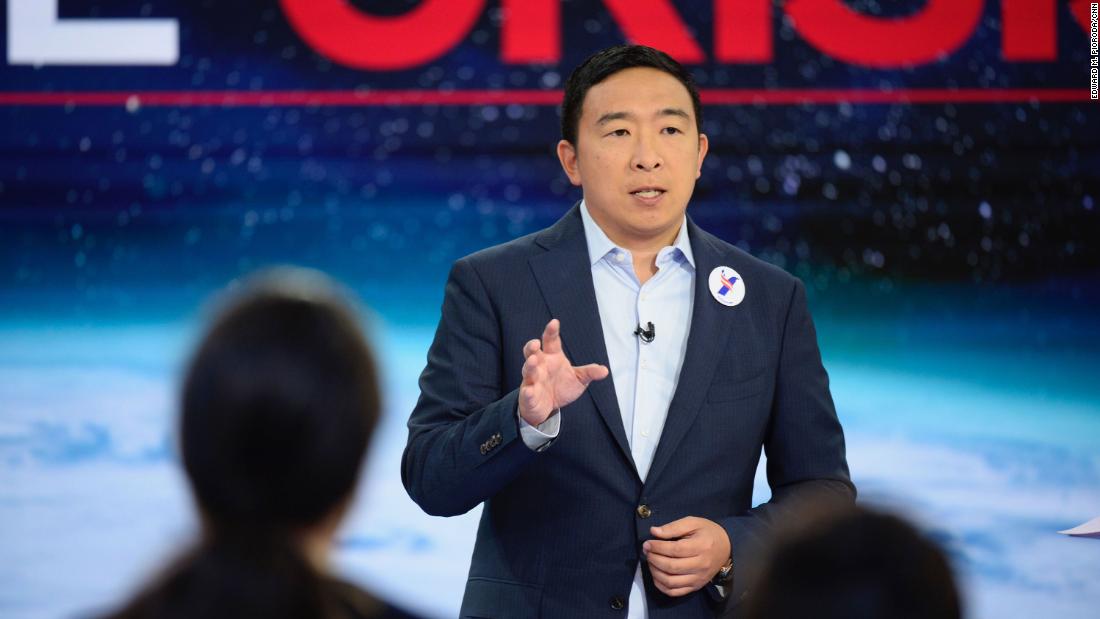[ad_1]
Yang, a Taiwanese-American candidate, tweeted directly to comedian Shane Gillis, writing, “Shane — I prefer comedy that makes people think and doesn’t take cheap shots. But I’m happy to sit down and talk with you if you’d like.”
Yang’s tweet lent the highest voice yet on the debate and anger raging on social media this weekend, focusing attention on Yang’s identity as a man of East Asian descent running for the highest office in American politics.
The tweet prompted a response from Sen. Elizabeth Warren’s campaign manager, Roger Lau, the first Asian American in the role for a major presidential candidate.
“Thank you for your leadership, sir!” tweeted Lau. “This is absolutely f’ed, but I agree that this can and should be a teaching moment. We can and should be better than this.”
The celebratory mood on social media among Asian Americans over Bowen Yang’s hiring quickly soured when freelance writer Seth Simons tweeted a two-minute video clip of Gillis’ podcast, ‘Matt and Shane’s Secret Podcast,’ recorded last year.
With fellow comedian Matt McCusker, Gillis says on the video, “Let the f—ing ch–ks live there,” of Chinatown. Gillis also mocks a Chinese accent, the language barrier and says, “Chinatown’s f—ing nuts.”
The video recording of the podcast episode has been deleted from YouTube.
Gillis responded on Twitter to the criticism, posting a statement. “I’m a comedian who pushes boundaries. I sometimes miss,” reads the statement. “If you go through my 10 years of comedy, most of it bad, you’re going to find a lot of bad misses. I’m happy to apologize to anyone who’s actually been offended by anything I’ve said. My intention is never to hurt anyone but I am trying to be the best comedian I can be and sometimes that requires risks.”
“You throw stuff out there and you get to see them react to things, like yea or nay, what’s funny and what’s not,” Gillis is quoted as saying. “You can be racist to Asians. That’s what we’re finding out,” Gillis told Billy Penn.
“I think racism against Asian Americans is one of the more under-reported or under-estimated components of racism in America,” In Bardella told CNN, To those of us in the Asian American community who have been the targets of racism, there is nothing funny about it.”
Bardella adds in response that “as someone not burdened with all that comes from running for President, my tolerance for such blatant racism is not on par with Yang’s. I think he should lose his job as it is clear from his statement that he simply does not fully understand how egregious his brand of ‘comedy’ is to the Asian American community. If this were a white comedian caught on tape using the n*word, we wouldn’t even be entertaining the conversation of whether or not he should keep his job.”
Yang himself is a complicated figure to highlight the racist comments. At Thursday’s Democratic debate, Yang cracked an off-color joke as he discussed healthcare and the mounting paperwork doctors face.
“I’m Asian, so I know a lot of doctors,” quipped Yang.
The joke landed like a thud with some on social media, with Asian American commentators accusing Yang of leaning on the “model minority” Asian stereotype.
“People are listening to what he has to say,” says Yu. “He’s using his platform for what it is. It’s not insignificant and I’d add this– it’s not just Asian Americans who are paying attention. It amplifies the issue more.”
For Yu, the ultimate judgment of whether Yang’s tweets mean anything outside of the Asian American community will be, what happens to Gillis on SNL.
“Are we headed into an era, that just like our President, where anyone can say anything racist about anyone? Are we really in a place where racism is just a difference of opinion? If there’s no response at all from NBC, I think’s that pretty weak,” says Yu.
CNN’s MJ Lee contributed to this report.
[ad_2]
Source link


